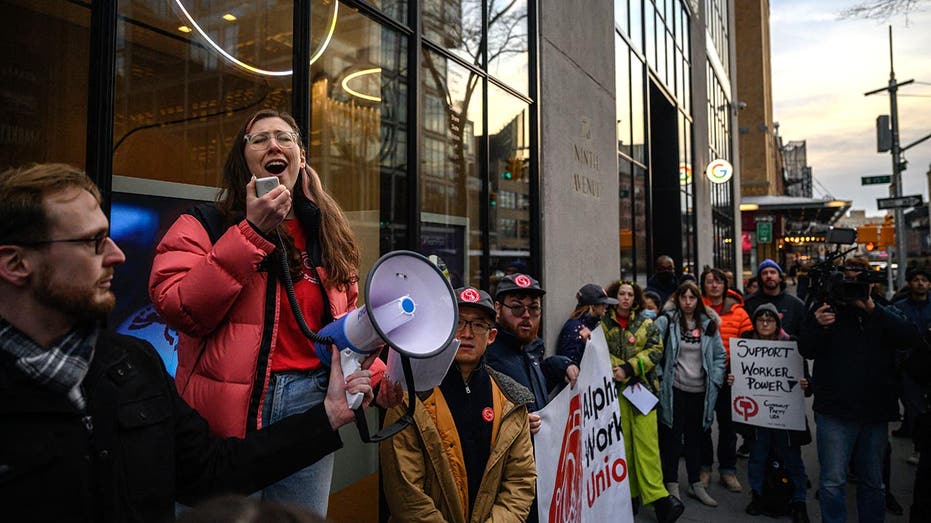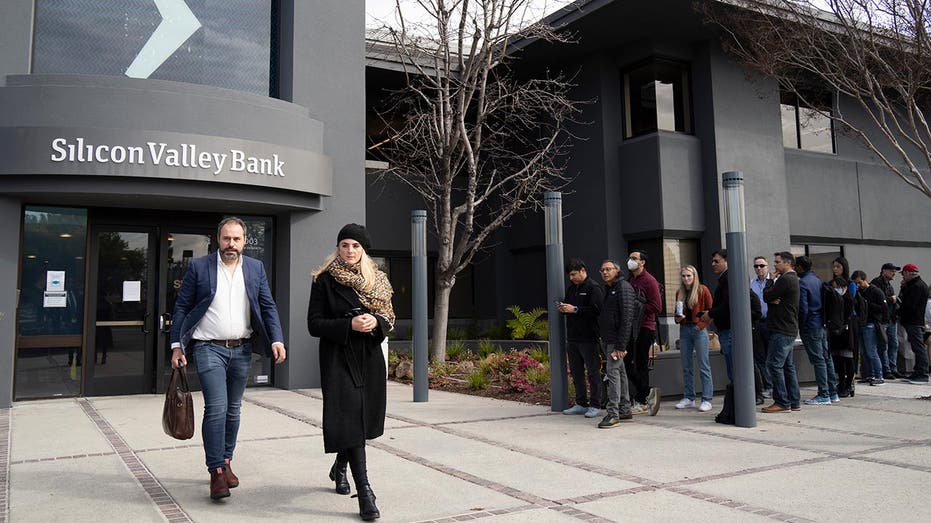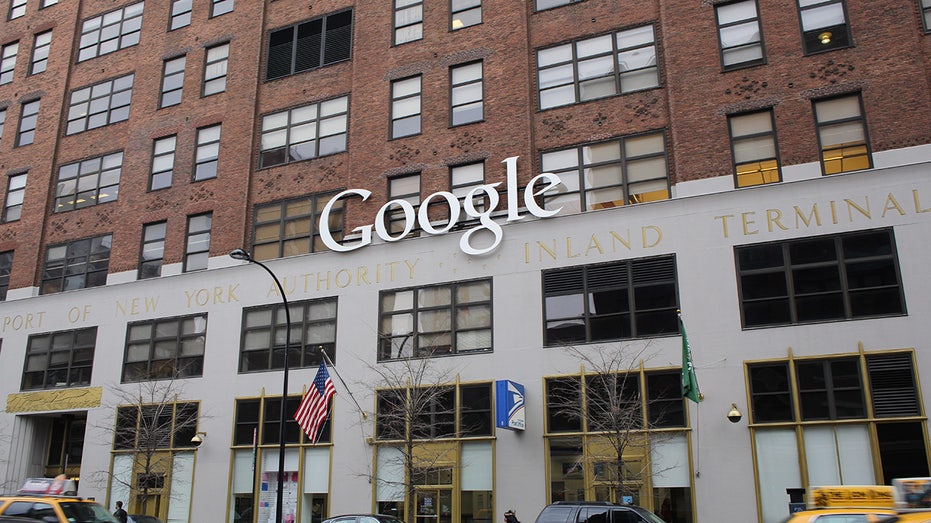Laid-off tech workers launch ‘revenge startups’ just as money dries up
New entrepreneurs are on the hunt for venture capital as investors are pulling back.
Founderpath lends startups millions during Silicon Valley Bank crisis
Founderpath CEO Nathan Latka explains how his business is helping some startups meet payroll after their funds were 'stuck' during the SVB meltdown on 'Varney & Co.'
Venture-capital investors, as recently as last year, used to seek out founders who were quitting their tech jobs to launch their own businesses. Now that mass layoffs are pushing many people down the entrepreneurial path, venture investors have grown stingier.
More than 330,000 people have lost their jobs at tech companies since early 2022, with some 168,000 job losses this year, according to data tracker Layoffs.fyi.
Among them are entrepreneurial folks well suited for the risk of starting a business because they are highly skilled and tend to be financially stable after years at big tech companies. Some are launching "revenge startups," as one investor described them.

Members of the Alphabet Workers Union (CWA) hold a rally outside the Google office in response to recent layoffs, in New York on February 2, 2023. - Google's parent company (Ed Jones/AFP via Getty Images / Getty Images)
Jen Zhu co-founded Maida Health Inc., a startup that provides software tools for healthcare organizations, after her job as a senior manager of program development at Carbon Health Technologies Inc. was eliminated last year. "For me it was initially a sense of relief," Ms. Zhu said of her dismissal, which made her feel like she "didn’t have an excuse anymore" not to pursue her entrepreneurial ambitions, she said.
WARREN, OCASIO-CORTEZ PROBE MAJOR SVB DEPOSITORS ABOUT ROLE IN BANK COLLAPSE
Maida Health has raised $100,000 from Day One Ventures so far and is looking for ways to generate revenue early to be more self-sufficient and appeal to investors, Ms. Zhu said.
Layoffs can serve as an impetus for people who want to be their own bosses, said Meghna Virick, an associate dean of undergraduate programs at San Jose State University who has studied entrepreneurial intent after a layoff. "There’s a discontinuity in someone’s career trajectory. And that can be a jolt," she said.
But getting capital for their ventures is another story. Money flowing into early-stage startups recently hit a multiyear low.
HOW THE BANKING CRISIS COULD HAMMER SMALL BUSINESSES
In the fourth quarter of 2022, venture investments at the seed level in the U.S. dropped 40% from a year earlier to $3.1 billion, invested through 829 deals, a 50% decline, according to PitchBook-NVCA Venture Monitor. The number of seed deals completed in last year’s fourth quarter marked the lowest three-month showing since 2016.
In March, many venture investors had to put funding conversations on hold to deal with the collapse of Silicon Valley Bank. Preliminary data showed that both total deal volume and deal count declined again in the first quarter, according to PitchBook-NVCA Venture Monitor.

People queue up outside the headquarters of Silicon Valley Bank to withdraw their funds on March 13, 2023 in Santa Clara, California. (Liu Guanguan/China News Service/VCG via Getty Images / Getty Images)
Some venture firms are wary of entrepreneurship dabblers who want to test an idea because they have time now.
Wesley Chan, co-founder and managing partner at FPV Capital, a $450 million early-stage venture firm, says his firm has received pitches from founders affected by layoffs. "We always encourage them to pursue their idea but we are unlikely to fund it," he said. "The startups that drive exceptional returns have been thinking of their idea their entire lives."
Sarah Porter, a 28-year-old who lives in West Des Moines, Iowa, said having a strong mission has helped her deal with the reality of launching a startup last year in a shrinking venture market. She co-founded MedDefend Corp., which aims to help patients navigate the medical system to get to a diagnosis faster, after her job leading direct sales at a startup ended in October.
"Having a good group of people around you and using that fear to motivate you is helping me overlook the market conditions. There’s money out there," Ms. Porter said. MedDefend has joined Hatchet Ventures, an advisory network that helps early-stage startups raise capital and expand their businesses, in hopes of improving its chances of success.
MCDONALD’S CUTS PAY PACKAGES, CLOSES OFFICES ALONGSIDE LAYOFFS ACROSS CHAIN
MedDefend pushed back a few conversations with potential investors in March due to the unraveling of Silicon Valley Bank, Ms. Porter said. She added that many angel investors the company is speaking with weren’t affected.
Some investors have said they are excited about the possibility of great new businesses coming out of the downturn, in line with Silicon Valley’s culture of reinvention and rebirth.
On the January day that Google parent company Alphabet Inc. announces it would cut 6% of staff, its largest-ever round of layoffs, Jason Calacanis, an angel investor and a host of a popular podcast about startups, posted a tweet urging former Googlers to band together and launch companies. "Now is the time…you’ve got nothing to lose and a huge severance package to underwrite your revenge startup!" he wrote in a post on Twitter that was viewed some 1.2 million times.

The Google New York offices, Chelsea Market Space Ninth Avenue, Manhattan, New York. ((Photo by Tim Clayton/Corbis via Getty Images) / Getty Images)
During the booming tech market of recent years, Masha Bucher, founder and general partner at venture firm Day One Ventures, said she was eager to find startups launched by people who left tech companies.
Now that such talent is flooding the market, Ms. Bucher said she has decided to address the process more systematically, by launching a program last fall called Funded, not Fired. She said her firm picked seven startups, including Ms. Zhu’s Maida Health, out of 1,200 applicants, and invested $100,000 in each.
One of the founders selected by Day One ended up deciding that running a company was too hard and went back to looking for a regular job, she said.
Ms. Bucher said that she has grown more skeptical of the latest wave of entrepreneurs. "Now I’m more focused on finding out risks, finding out flaws, reasons to be pessimistic and not believing in this thing," she said.
CLICK HERE TO READ MORE ON FOX BUSINESS
Despite the downturn, some laid-off founders are finding fundraising success fairly quickly.
Teddy Ni and Alex Danilowicz co-founded Mirrorful, a startup that develops open-source software for use by software engineers, last year after they both got laid off from a startup. They raised $500,000 from Y Combinator, a Silicon Valley startup accelerator that they joined in January.
Mr. Ni, 26, who had worked as a software engineer at Robinhood Markets Inc. before joining the startup that laid him off, said he had considered launching a startup since college but held off in part because he enjoyed his full-time work, plus the compensation and the professional development that came with it.
| Ticker | Security | Last | Change | Change % |
|---|---|---|---|---|
| HOOD | ROBINHOOD MARKETS INC. | 82.82 | +10.14 | +13.95% |
Mr. Ni has taken lessons from getting laid off, he said. It became clear that many companies didn’t keep good track of their spending. "Hopefully, we won’t make those mistakes," he said.




















